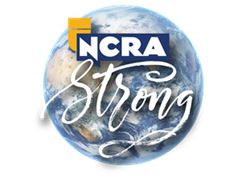
By Donna Cascio
“A fair and independent court system is essential to the administration of justice.” That is the first sentence of the Pennsylvania Supreme Court’s Code of Conduct for Employees of the Unified Judicial System.
How can official reporters, as officers of the court, convey the values of impartiality and fairness that promote the integrity of the judicial system with “the highest standards of professional and ethical conduct”?(1)
We, as officers of the court, have the obligation to promote justice and assist in the effective operation of the justice system.
Of course, we are aware that our own Code of Professional Ethics demands that we be fair and impartial toward each participant and that we be alert to situations that give the impression of a conflict of interest or that give the appearance of partiality or impropriety.
We must be careful to convey that impartiality not only while on the record, but before and after court is in session. Could our actions, innocent as they may seem to us, be construed as favoritism by a stranger? Do your best to keep conversation before court is convened work-related — spellings of witnesses’ names, clarification of representation, updating addresses of counsel, and so forth.
When we are in our familiar surroundings, perhaps working with the same attorneys and court staff year after year, many of whom have become our friends, are we careful to avoid giving the impression of favoritism? Be cognizant of the impression you are making upon strangers, whether counsel or perhaps the parties, by your conversation and actions with familiar attorneys or court personnel.
I advise that when you are whispering or chuckling with the clerk or court officer before the judge comes in the courtroom, think about whether that conduct could appear to be commentary about attorneys or parties in the courtroom.
Please refrain from making that impression on others. Do your utmost to project professionalism in the courtroom, as your behavior is a reflection not only upon the judicial officer for whom you are working, but the entire justice system.
Put yourself in the shoes of a newcomer to your courtroom. Perhaps that newcomer is an attorney, perhaps a litigant. Be aware that your overly friendly conduct toward that newcomer’s opposing counsel or litigant can plant a seed of doubt in the newcomer’s mind. Any conduct that calls into question the impartiality and accuracy of the record is to be avoided.
In one particular jury trial in my court system, members of the court staff were conversing and joking with the court reporter in the courtroom during a recess. The defendant’s girlfriend was in the courtroom at the time and overheard a comment from someone in the group huddled about the court reporter’s desk. The comment was misconstrued by the girlfriend as a racist remark. It definitely was not. It was an innocent comment made by a jury officer, not the court reporter, and not a racist remark; but, taken out of context, that conduct had repercussions.
Not only was that defense attorney successful in requesting a mistrial based on the impression made upon the defendant and his girlfriend and their loss of faith in the integrity of the court personnel and court record, but all court personnel involved were ineligible to be assigned to any future case involving that defendant.
The reminder memo issued by the Court thereafter read, in part, “Remember that your actions as a court employee reflect not only on you, but also on the court and the judge to whom you are assigned.”
The point is that commenting, gesturing, whispering, or giggling can be interpreted by observers as conversation about them and could make them feel apprehensive at the very least, if not downright indignant or disrespected. The best course of action is to conduct yourself in a professional way, courteous to all, and not overly warm and friendly to your acquaintances when strangers are in your midst.
People now, more than ever, need to keep faith in the part of our Pledge of Allegiance that reads “…and justice for all.”
Donna Cascio, FAPR, RDR, CMRS, is a retired official from Somerset, Pa., and a member of the NCRA Committee on Professional Ethics. Questions about ethics can be sent to msavino@ncra.org.
(1) See Pennsylvania Rule of Judicial Administration 4006(C). All court reporting personnel are officers of the court with a duty to comply with all court regulations and orders and to maintain the highest standards of professional and ethical conduct.





